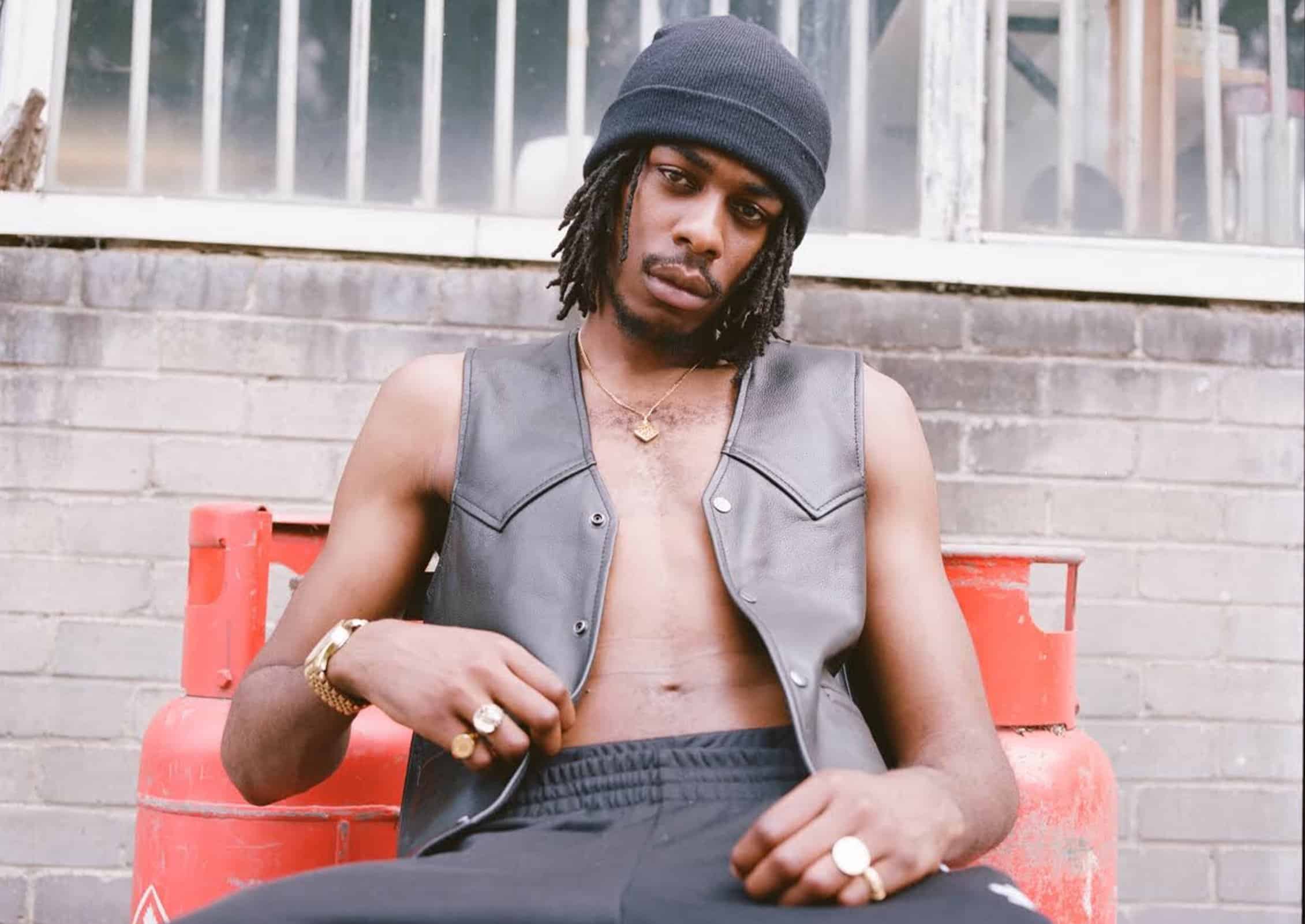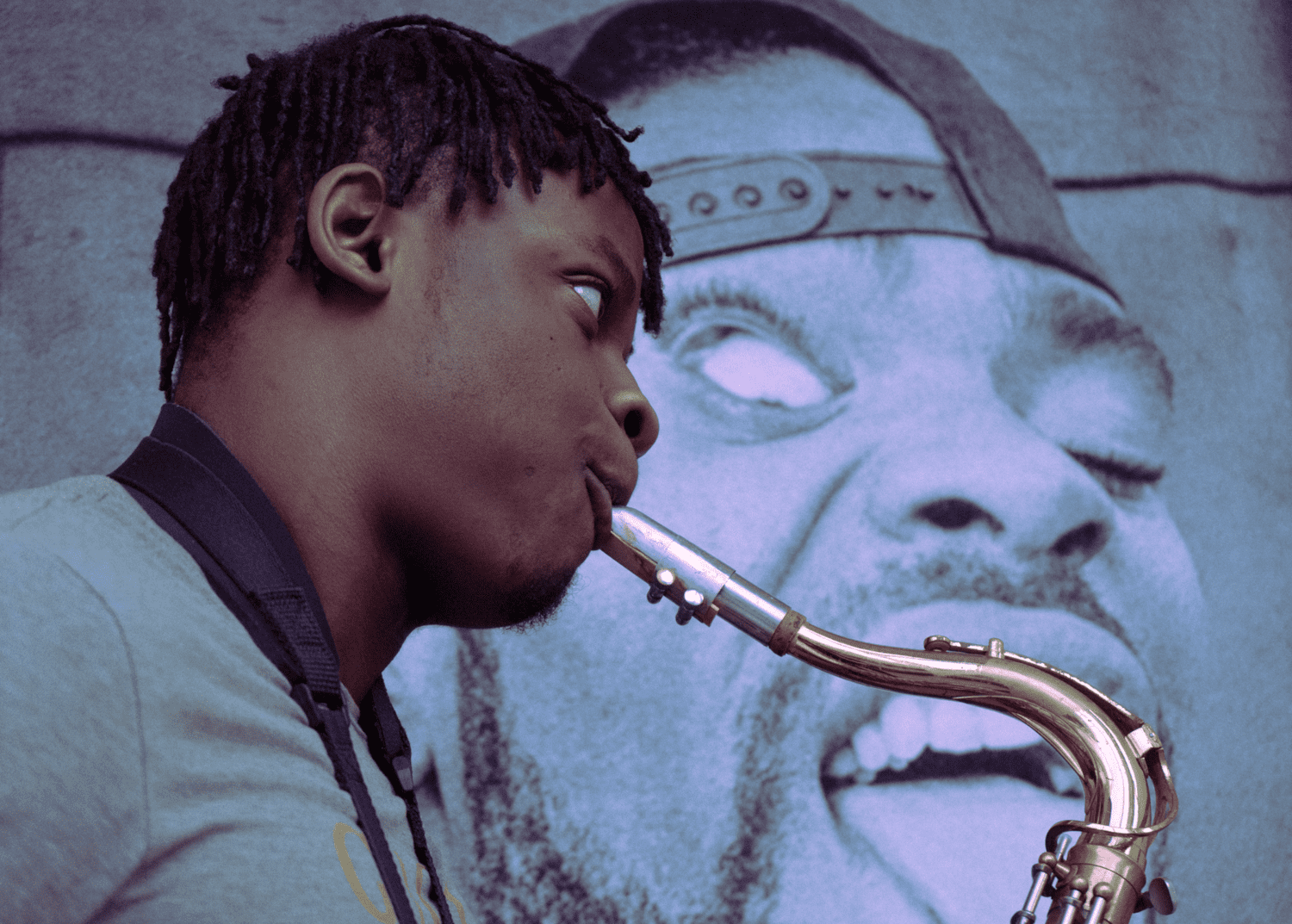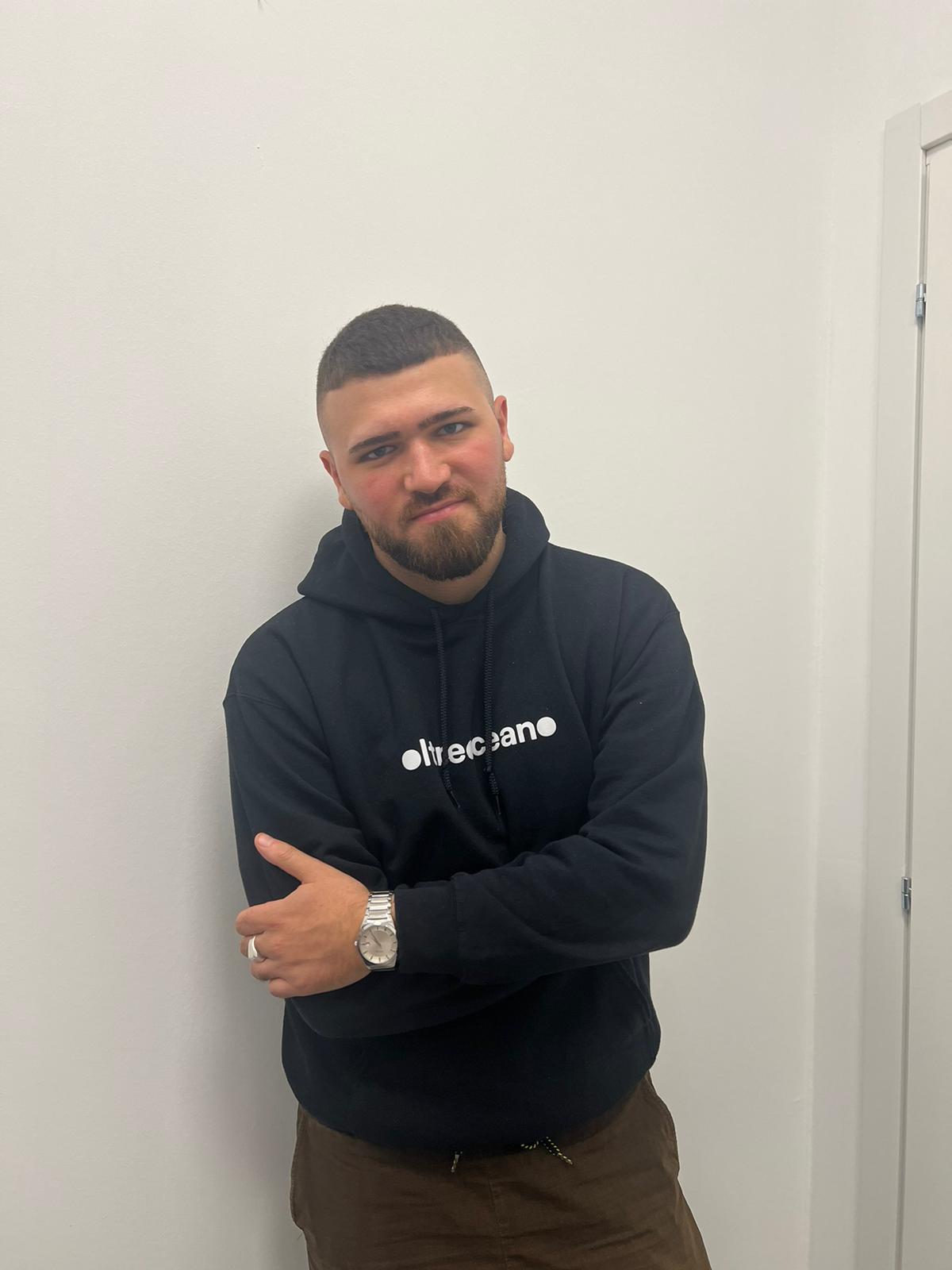Could drill music and jazz coexist?

The Covid-19 pandemic was a watershed for many aspects of our society. Even in music, the pandemic has represented a turning point both on the business side and in audience perception. In the rap industry new artists became influential as others lost their place in the market. During that period rappers like Pop Smoke, Fivio Foreign, Sheff G have reached the peak of their careers placing Brooklyn drill on the map. Anyone who has ever listened to a song of those guys will struggle picturing a meeting point between drill and jazz music. And yet it exists. In London, where the Brooklyn drill sound was born, there are a bunch of artists who are experimenting new, undiscovered sounds.
Uk drill has an interesting story. This music genre developed in the early 2010s in England as a meeting point between Chicago drill rap style and classics sub-genres of English rap: grime and road rap. This strange mixture has opened to a new era for British hip hop. The new murky sound is characterized by dark synths, distorted 808 basslines, alterations in the pitch of the drums (slides, in technical jargon), trap-style hi-hats, delays in the snares (a kind of echo effect, we might say). Thanks to rappers like 67, Skengdo & AM, Harlem Spartans and Headie One, Uk drill became the main sound of London streets, narrating the marginalization of the poorest and racialized communities. The lyrics closely related to gang activities have also provoked a public debate about the effects this music could have on young people. A toxic narrative affected drill music bringing back controversies about racial issues in England. In fact, UK drill is part of the huge history of British black music. Similar to past genres such as jungle music, UK garage and English rap, UK drill is a child of the immigration from West Indians, the former colonies of the British Empire in the Caribbean.
From the same social and racial environment also emerged the new London jazz scene. Recent years have seen the rise of young artists such as saxophonist Nubya Garcia, the quintet Sons of Kemet, drummer and producer Moses Boyd, musician and producer Kamaal Williams, the octet KOKOROKO, the five-piece group Ezra Collective, UK jazz scene’s primary party-starter. These musicians draw on a wide range of influences, from traditional jazz to contemporary r&b and hip hop, and are pushing the boundaries of the genre in towards exciting new directions. Dub, dancehall, calypso, soca, afrobeats, highlife, township jive, nyabinghi, all put through the filter of rave, house and hip hop: this strange cocktail of sounds is the London jazz trademark. The multicultural nature of the British capital has had a very obvious effect on the music made by this generation of musicians. “We’ve all grown up in London, and these rhythms have just seeped into us”, says tenor saxophonist Nubya Garcia in an interview with The Guardian. “It’s happened from listening to our parents’ records, or from going to Carnival, or to dub nights, but it can also be the sounds you hear when you’re walking past a car, or in a local shop, or listening to what kids on the bus are playing on their phones”.
the quintet Sons of Kemet, drummer and producer Moses Boyd, musician and producer Kamaal Williams, the octet KOKOROKO, the five-piece group Ezra Collective, UK jazz scene’s primary party-starter. These musicians draw on a wide range of influences, from traditional jazz to contemporary r&b and hip hop, and are pushing the boundaries of the genre in towards exciting new directions. Dub, dancehall, calypso, soca, afrobeats, highlife, township jive, nyabinghi, all put through the filter of rave, house and hip hop: this strange cocktail of sounds is the London jazz trademark. The multicultural nature of the British capital has had a very obvious effect on the music made by this generation of musicians. “We’ve all grown up in London, and these rhythms have just seeped into us”, says tenor saxophonist Nubya Garcia in an interview with The Guardian. “It’s happened from listening to our parents’ records, or from going to Carnival, or to dub nights, but it can also be the sounds you hear when you’re walking past a car, or in a local shop, or listening to what kids on the bus are playing on their phones”.
In this vibrant cultural context, it was probably only a matter of time before jazz and drill began to converge. Examples from the past weren’t lacking. Remaining only in England, MF Doom was one of the best rapper-jazzman of all time. The way MF Doom constructed phrases, using his completely unique rhythmic intonation, was an inspiration to many. Then, in more recent years, Loyle Carner became the most progressive rapper in the Uk, mixing jazzy beats with a spoken world style of rapping. His first record, Yestedary’s Gone (2017), has been acclaimed from music critics. Thanks to it, Loyle Carner received two respective Brit Award nominations for British Breakthrough Act and British Male Solo Artist.
However, the idea of mixing jazz and drill was much more audacious. One of the first rappers to experiment in this direction was Knucks.

Rapper / Producer Knucks
Knucks was born on November 12th, 1994, in London, and is a Nigerian Igbo descent. In the early 2000s, while he was living in inner-city London, Knucks went to a Nigerian boarding school, where his love for music developed further. In 2014, he released his debut mixtape Killmatic, the title being a play on his hometown Kilburn and the Nas album Illmatic. This album was still immature. In the following years he only released several singles. The record that truly defines his style only arrived in 2019. NRG 105 is a ten song EP that mixes different atmospheres. The typical drill bassline finds a meeting point with sophisticated retro-taste samples. Home is the most emblematic song of this very first experiment. The lyrics tell about a young black man in London roped into crime by his friends. The chorus of the song refers to current events as the Great Fire of London and the epidemic of knife crime. The sound has all the main features of a drill beat but the jazzy piano that characterizes its melody gives to it a melancholy tone. Knucks’ second record, ALPHA PLACE (2022), was a major success. Preceded by the acclaimed hit “Los Pollos Hermanos”, ALPHA PLACE is one of the peaks of the so-called jazz-drill genre. In this record Knucks refines his style. It is indeed a much more instrumental record. ALPHA PLACE was executive produced by both Knucks himself and the Brit-jazz extraordinaire, Venna. “I knew that I wanted to make a project that sounded like my song ‘Home’”, he said in an interview with Complex. “We wanted to structure the sound so that it was a mix of rap, drill and jazz. I wanted to show that I had more to me, but at the same time reinforce the ‘Home’ sound. I wanted it to be natural”.
Knucks is not the only one who had a vision for the future of drill music. In 2018, the British-Angolan rapper Blanco was spending his three years conviction in prison when he had an epiphany. He decided to move away from making hardened UK drill music – a genre that he’d helped to popularize as a leading architect of the teenage collective Harlem Spartans – and tap into his Portuguese-language roots. “Drill was fun when I was doing it with people, you bounce off each other,” he says in an interview with The Guardian. “But doing it by myself, I couldn’t find any passion. I found passion for the Brazilian sound.” Born in London in 1999, Blanco is the son of Angolan refugees who escaped civil war and came via Portugal to the UK. Blanco was raised against a backdrop of big family gatherings, Brazilian cable television shows and baile funk, a Miami hip-hop-infused musical genre born in the favelas of Rio de Janeiro. Blanco’s voice became known when his group Harlem Spartans blew up in 2017 on tracks such as Call Me a Spartan, No Hook, Kent Nizzy, Money on the Roads, Kennington Where It Started and more. Their low-budget videos achieved tens of millions of YouTube views – unprecedented at the time – catapulting their creators’ wintry south London aesthetic around the world. In February 2017, Blanco was arrested on weapons possession charges. Soon after his release from prison, Blanco released his debut solo project, English Dubbed, on Polydor Records in 2019. Its opening track, “Pull Up”, was the start of what has now become his distinctive sound: neatly laying softened drill flows over the catchy shuffle of baile funk drum patterns. In 2021, his City Of God mixtape became an instant classic. In the same year he released ReBourne, a refined, soulful blend of afroswing, baile funk-fused drill and philosophical UK rap.
was spending his three years conviction in prison when he had an epiphany. He decided to move away from making hardened UK drill music – a genre that he’d helped to popularize as a leading architect of the teenage collective Harlem Spartans – and tap into his Portuguese-language roots. “Drill was fun when I was doing it with people, you bounce off each other,” he says in an interview with The Guardian. “But doing it by myself, I couldn’t find any passion. I found passion for the Brazilian sound.” Born in London in 1999, Blanco is the son of Angolan refugees who escaped civil war and came via Portugal to the UK. Blanco was raised against a backdrop of big family gatherings, Brazilian cable television shows and baile funk, a Miami hip-hop-infused musical genre born in the favelas of Rio de Janeiro. Blanco’s voice became known when his group Harlem Spartans blew up in 2017 on tracks such as Call Me a Spartan, No Hook, Kent Nizzy, Money on the Roads, Kennington Where It Started and more. Their low-budget videos achieved tens of millions of YouTube views – unprecedented at the time – catapulting their creators’ wintry south London aesthetic around the world. In February 2017, Blanco was arrested on weapons possession charges. Soon after his release from prison, Blanco released his debut solo project, English Dubbed, on Polydor Records in 2019. Its opening track, “Pull Up”, was the start of what has now become his distinctive sound: neatly laying softened drill flows over the catchy shuffle of baile funk drum patterns. In 2021, his City Of God mixtape became an instant classic. In the same year he released ReBourne, a refined, soulful blend of afroswing, baile funk-fused drill and philosophical UK rap.
Thanks to the success of Knucks and Blanco’s new career, other rappers have tried experimenting with the jazz-drill sound. Sainté, one of UK rap’s brightest prospects, bagged his first viral song “Champagne Shots” following precisely the recipe of introspective and experimental drill. But exploration in this genre has not only come from the rappers’ side. Indeed, those who have pushed further with experimentation are jazz musicians. One above all must be mentioned: XVNGO.  XVNGO, stage name of Ayodeji Emmanuel Ijishakin, is a young saxophonist, producer and PhD student in artificial intelligence at University College of London. He grew up in the Tomorrow Warriors talent hub – a jazz studies program for kids from the Afro-Caribbean diaspora that has shaped nearly the whole London’s contemporary jazz scene. In addition to his solo projects, he plays with the best of London’s nu-jazz and electronic scene, artists such as Joe Armon-Jones and Tara Lily, KOKOROKO and Levitation Orchestra. XVNGO’s style is unmistakable: the drill’s heavy, violent bass lines provide the backdrop for his virtuoso saxophone moves. This is actually the other side of the coin of the experimentation we have talked about so far. While Knuks or Blanco have the perspective of jazz-drill as a sound to be filled with lyrics, XVNGO is a musician who gives life to instrumental-only songs. “My music consists mainly of a mixture of jazz and drill music. Something that came naturally. I put the styles together. This is an extension of my work as a trap producer, which led me to add my sax to the beats and push the sound into another dimension” he says in an interview to the Italian magazine DLSO.
XVNGO, stage name of Ayodeji Emmanuel Ijishakin, is a young saxophonist, producer and PhD student in artificial intelligence at University College of London. He grew up in the Tomorrow Warriors talent hub – a jazz studies program for kids from the Afro-Caribbean diaspora that has shaped nearly the whole London’s contemporary jazz scene. In addition to his solo projects, he plays with the best of London’s nu-jazz and electronic scene, artists such as Joe Armon-Jones and Tara Lily, KOKOROKO and Levitation Orchestra. XVNGO’s style is unmistakable: the drill’s heavy, violent bass lines provide the backdrop for his virtuoso saxophone moves. This is actually the other side of the coin of the experimentation we have talked about so far. While Knuks or Blanco have the perspective of jazz-drill as a sound to be filled with lyrics, XVNGO is a musician who gives life to instrumental-only songs. “My music consists mainly of a mixture of jazz and drill music. Something that came naturally. I put the styles together. This is an extension of my work as a trap producer, which led me to add my sax to the beats and push the sound into another dimension” he says in an interview to the Italian magazine DLSO.
Drill-jazz is far to be a real music genre. This is still in a very primal state. But these early experimentations tell us a lot about the direction music is taking. More and more artistic routes invite us to overcome ideological borders and glimpse meeting points where there seemingly would be none.

Gabriel Seroussi is an Italian author and music journalist. After attending a Bachelor’s degree in History at the University of Milan, he started collaborating with magazines such as Billboard, Rolling Stone, Esse Magazine among others. He is the founder and director of oltreoceano, an Italian printed review on African-American culture.
